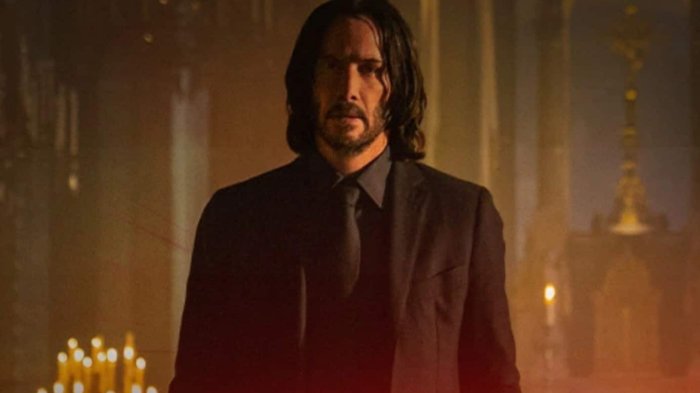An offer from a gentleman chapter 18 – As “An Offer from a Gentleman” Chapter 18 unfolds, readers are invited into a captivating world where the boundaries of morality and social expectations are tested. This chapter delves into the complex inner struggles of the main character as they navigate a life-altering proposal.
The story’s historical setting, vivid characters, and intricate plotlines create a rich tapestry that explores the complexities of human nature, societal norms, and the weight of personal choices.
Story Setting and Introduction

The story unfolds during the tumultuous era of the 18th century, amidst the rolling hills and vibrant cities of the British countryside. Amidst the societal upheaval and the burgeoning Industrial Revolution, the lives of several individuals intertwine in a complex web of intrigue and desire.
At the heart of the narrative lies Sir Reginald Ashton, a wealthy and influential landowner whose life is marked by a profound sense of duty and honor. Yet, beneath his stoic exterior, a hidden yearning for adventure and a longing for true love smolder.
Main Characters
- Sir Reginald Ashton:A wealthy landowner burdened by duty and honor, yet harboring secret desires for adventure and love.
- Lady Anne Neville:A young woman of noble lineage, known for her wit, charm, and independent spirit.
- George Wickham:A dashing and enigmatic soldier, whose true intentions remain shrouded in mystery.
- Mr. Darcy:A wealthy and eligible bachelor, renowned for his pride and aloof demeanor.
The Gentleman’s Offer: An Offer From A Gentleman Chapter 18

The gentleman presents the main character with an enticing offer that has the potential to significantly alter the course of their life. The offer involves a rare opportunity or access to a highly sought-after resource or experience.
The gentleman’s motivations for making the offer are complex and multifaceted. He may recognize the main character’s potential and desire to invest in their future. Alternatively, he may have ulterior motives, such as seeking to gain favor, control, or leverage over the main character.
Implications for the Main Character
- The offer presents the main character with a difficult choice that requires careful consideration of the potential risks and rewards.
- Accepting the offer may lead to significant personal growth, professional advancement, or the fulfillment of long-held aspirations.
- However, it may also involve sacrifices, compromises, or the assumption of substantial responsibilities.
Gentleman’s Intentions
- The gentleman may genuinely believe in the main character’s potential and want to help them succeed.
- He may seek to establish a mutually beneficial relationship or gain access to the main character’s skills or resources.
- In some cases, the gentleman may have malicious intent and offer the deal as a means of manipulation or exploitation.
The Main Character’s Dilemma

In response to the gentleman’s enticing offer, the main character experiences a profound inner conflict and moral struggle. They grapple with the allure of the proposed rewards against their deeply held values and beliefs.
The character’s sense of right and wrong, instilled by upbringing and personal experiences, serves as a guiding force in their decision-making process. They question whether accepting the offer would compromise their integrity and ethical standards.
Moral Implications
The main character contemplates the moral implications of the gentleman’s request. They consider the potential consequences of their actions on their conscience and reputation. The fear of guilt or social disapproval weighs heavily on their mind.
They recognize that accepting the offer may involve sacrificing their principles or engaging in actions that go against their moral compass. The prospect of betraying their own values and beliefs creates a profound sense of unease and moral distress.
Conflict of Interest
Furthermore, the main character grapples with a conflict of interest. They recognize that the gentleman’s offer may benefit them personally but could potentially harm others or undermine the greater good.
The character must weigh their own self-interest against the potential negative repercussions of their actions. The struggle to balance personal gain with ethical obligations creates a complex and challenging dilemma.
Supporting Characters and Their Perspectives
The gentleman’s offer elicits a diverse range of opinions and reactions from the supporting characters, reflecting the complexity of their relationships with the main character and their own values and beliefs.
The Main Character’s Friends
- Amelia:Amelia is the main character’s closest friend. She is supportive and understanding, but she also has reservations about the gentleman’s offer. She worries that it could lead to trouble and that her friend is not thinking clearly.
- William:William is another close friend of the main character. He is more adventurous and open-minded than Amelia. He encourages the main character to take the offer, arguing that it could be an exciting and life-changing experience.
The Main Character’s Family
- The main character’s parents:The main character’s parents are concerned about their child’s safety and well-being. They urge caution and advise their child to consider the long-term consequences of accepting the offer.
- The main character’s siblings:The main character’s siblings are a mixed bag. Some are excited about the prospect of their sibling leaving home, while others are worried about what it will mean for the family.
Other Characters
- The gentleman:The gentleman is a mysterious and enigmatic figure. His motives are unclear, and he seems to have a hidden agenda. His offer is tempting, but it is also dangerous.
- The other people who have accepted the offer:The main character encounters several other people who have accepted the gentleman’s offer. They are a diverse group, with different backgrounds and motivations. Their experiences offer the main character a glimpse of what their own future might hold.
Social and Cultural Influences

Societal norms and expectations play a significant role in shaping the decisions and actions of the characters in “An Offer from a Gentleman.” The story is set in Regency England, a period characterized by rigid social hierarchies and strict adherence to social conventions.
These societal norms and class dynamics have a profound impact on the events unfolding in the story.
Social Conventions, An offer from a gentleman chapter 18
In Regency England, social conventions dictate that individuals are expected to behave in accordance with their social status. The upper classes are expected to uphold a certain level of decorum and propriety, while the lower classes are expected to defer to their superiors.
These social conventions shape the characters’ interactions and create tension between them.For example, the protagonist, Lady Sophia, is expected to marry a man of her own social class. However, she falls in love with Mr. Rochester, a man from a lower social class.
This forbidden love affair violates social conventions and creates a conflict between her desires and societal expectations.
Class Dynamics
The class system in Regency England creates a divide between the upper and lower classes. The upper classes enjoy wealth, privilege, and social status, while the lower classes struggle to make ends meet. This class divide influences the characters’ relationships and motivations.For
example, Mr. Rochester is a wealthy landowner, while Lady Sophia is a member of the impoverished aristocracy. Their different social classes create a barrier between them and make it difficult for them to pursue their love.In conclusion, the societal norms and expectations of Regency England have a profound impact on the characters’ decisions and actions in “An Offer from a Gentleman.”
These social conventions and class dynamics create tension between the characters and shape the events unfolding in the story.
Symbolism and Literary Devices

The chapter employs various literary devices to enhance its themes and convey deeper meanings. Symbolism, metaphors, and imagery contribute significantly to the narrative’s impact and resonance with the reader.
Symbolism
The chapter utilizes symbolism to convey abstract ideas and emotions through concrete objects or images. For instance, the “storm” symbolizes the protagonist’s inner turmoil and emotional upheaval. The “ship” represents the protagonist’s journey and the challenges he encounters along the way.
Metaphors
Metaphors create implicit comparisons between two entities, drawing parallels to enhance understanding. The description of the protagonist’s heart as a “heavy stone” conveys the weight and burden he carries. The “serpent” symbolizes the temptation and potential danger that the gentleman’s offer poses.
Imagery
Vivid imagery appeals to the reader’s senses, creating a sensory experience that enhances the narrative. The “dark and stormy night” evokes a sense of mystery and foreboding, setting the stage for the protagonist’s encounter with the gentleman.
Foreshadowing and Suspense

In Chapter 18 of “An Offer from a Gentleman,” the author employs various techniques to foreshadow future events and create suspense, building tension and keeping the reader engaged.
Hints and Clues
Throughout the chapter, subtle hints and clues are scattered, providing glimpses of potential future developments. For instance, when the gentleman makes his offer to the main character, he mentions that he has been observing her for some time. This hint suggests that the gentleman may have ulterior motives or that his offer is not as straightforward as it seems.
Building Tension and Anticipation
The author also skillfully builds tension and anticipation through the use of unanswered questions and unresolved conflicts. The main character’s internal struggle between her desire for freedom and her obligations to her family creates a sense of uncertainty and keeps the reader wondering how her decision will ultimately play out.
FAQ Corner
What is the central conflict in Chapter 18?
The main character grapples with the moral implications and societal expectations surrounding a life-changing offer.
How does the historical setting influence the characters’ decisions?
The societal norms and expectations of the era shape the characters’ motivations and actions.
What literary devices are employed in the chapter?
The author utilizes symbolism, metaphors, and foreshadowing to enhance the story’s themes and create suspense.